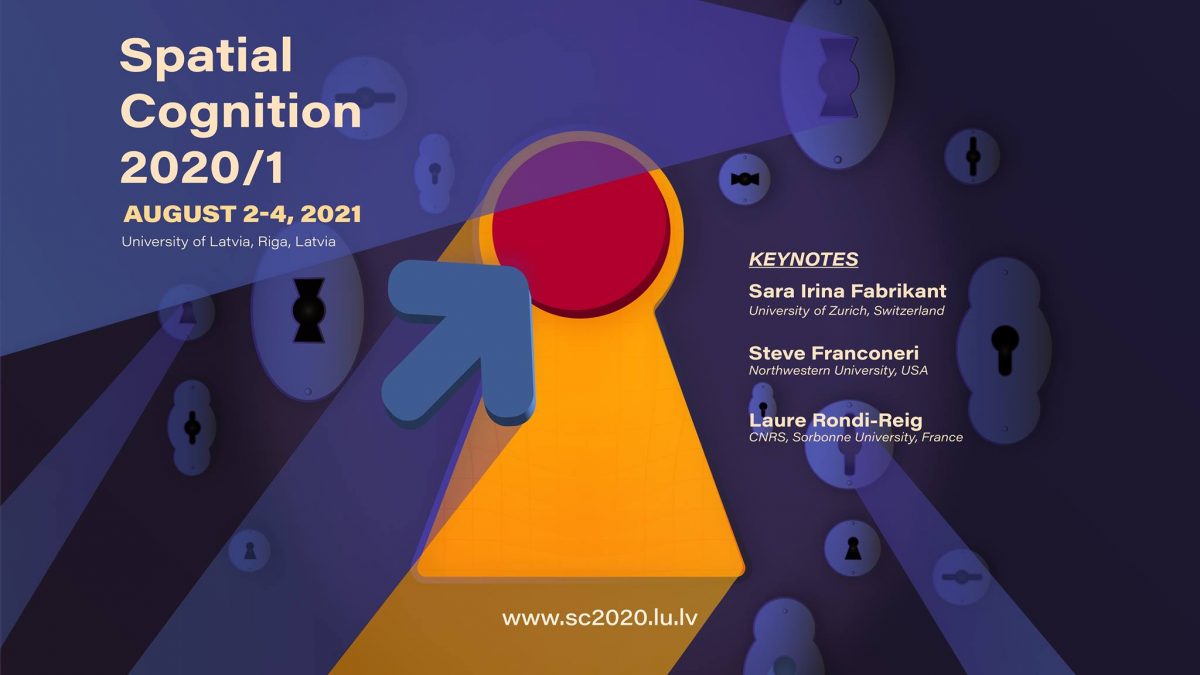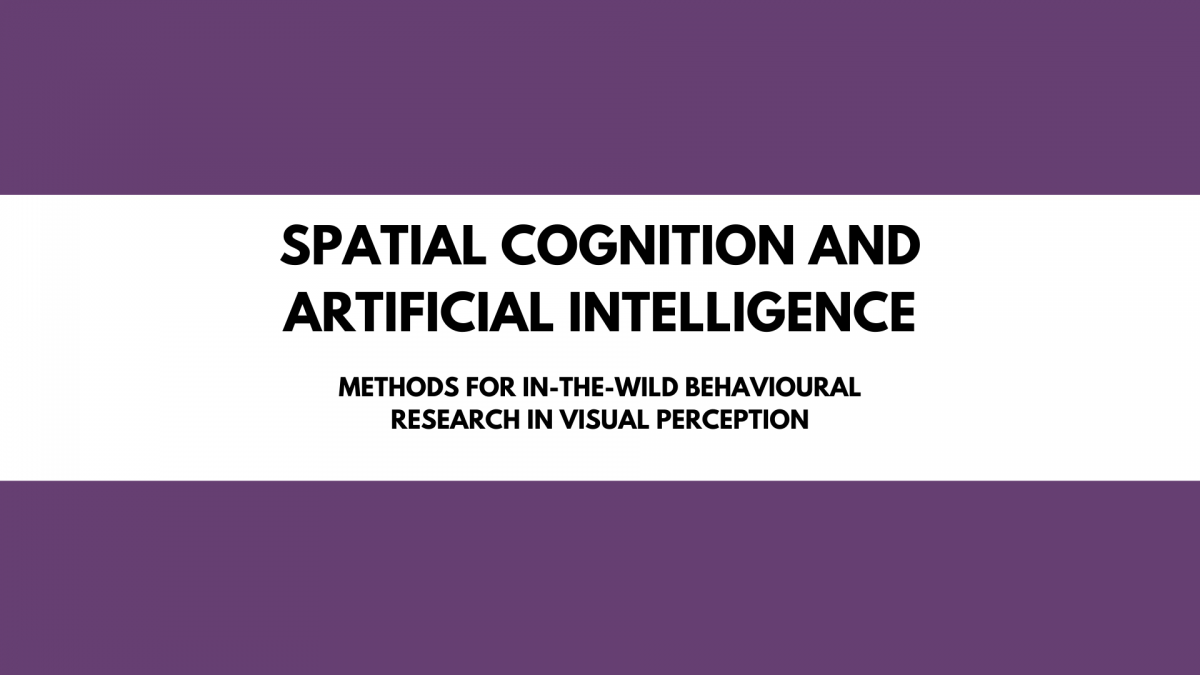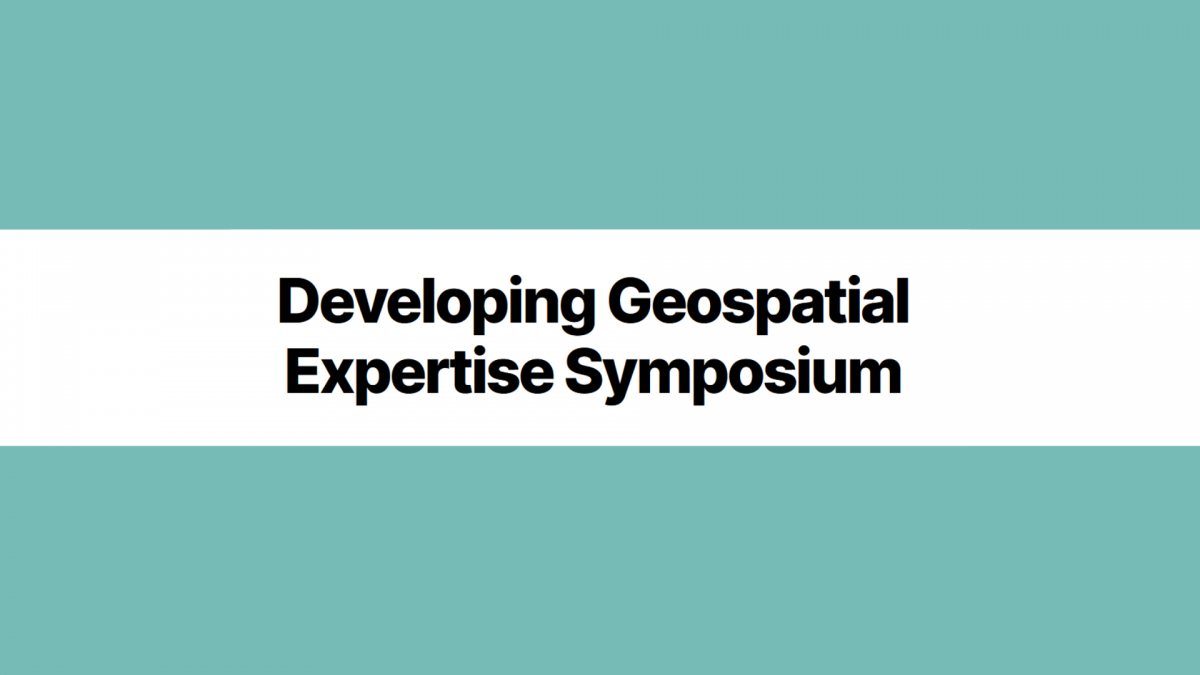Author: Jelena Glusakova
The program is published!
The program is available here
Tutorial: Spatial Cognition and Artificial Intelligence
Spatial Cognition and Artificial Intelligence: Methods for In-The-Wild Behavioural Research in Visual Perception
The tutorial on “Spatial Cognition and Artificial Intelligence” addresses the confluence of empirically based behavioural research in the cognitive and psychological sciences with computationally driven analytical methods rooted in artificial intelligence and machine learning. This confluence is addressed in the backdrop of human behavioural research concerned with “in-the-wild” naturalistic embodied multimodal interaction. The tutorial presents:
- an interdisciplinary perspective on conducting evidence-based (possibly large-scale) human behaviour research from the viewpoints of visual perception, environmental psychology, and spatial cognition.
- artificial intelligence methods for the semantic interpretation of embodied multimodal interaction (e.g., rooted in behavioural data), and the (empirically driven) synthesis of interactive embodied cognitive experiences in real-world settings relevant to both everyday life as well to professional creative-technical spatial thinking.
- the relevance and impact of research in cognitive human-factors (e.g., in spatial cognition) for the design and implementation of next-generation human-centred AI technologies
Keeping in mind an interdisciplinary audience, the focus of the tutorial is to provide a high-level demonstration of the potential of general AI-based computational methods and tools that can be used for multimodal human behavioral studies concerned with visuospatial, visuo-locomotive, and visuo-auditory cognition in everyday and specialized visuospatial problem solving. Presented methods are rooted in foundational research in artificial intelligence, spatial cognition and computation, spatial informatics, human- computer interaction, and design science. We highlight practical examples involving the analysis and synthesis of human cognitive experiences in the context of application areas such as (evidence-based) architecture and built environment design, narrative media design, product design, and visual sensemaking in autonomous cognitive systems (e.g., social robotics, autonomous vehicles).
TUTORIAL PRESENTERS
Mehul Bhatt (Örebro University, Sweden)
Jakob Suchan (University of Bremen, Germany)
Vasiliki Kondyli (Örebro University, Sweden)
Vipul Nair (University of Skövde, Sweden)
The tutorial on Spatial Cognition and Artificial Intelligence is an initiative of:
CoDesign Lab EU / https://codesign-lab.org
Tutorial contact / info@codesign-lab.org
Call for Participation: Developing Geospatial Expertise Symposium
You are invited to submit short papers by June 15, 2021, discussing your perspectives and/or research on developing geospatial expertise as part of the Spatial Cognition 2020/21 Conference (http://sc2020.lu.lv).
Ten to twelve papers will be selected by the organizers for 15-minute presentations plus Q&A at the symposium.
Symposium overview, structure, key dates, paper submission via EasyChair, and list of topics can be found at: http://burtelab.sites.tamu.edu/developing-geospatial-expertise-symposium/
Registration is open now!
Registration fees
Early bird (until July 1, 2021)
| Participants | 60 EUR |
| Poster authors accepted 2020 | 40 EUR |
Regular (from July 2 until July 25, 2021)
| Participants | 80 EUR |
| Poster authors accepted 2020 | 50 EUR |
The fee for Spatial Cognition 2020/1 include: entrance to the SC2020/1 Lectures, Workshops, and Satellite Conferences.
Registration form and payment information
Registration process for SC 2021 is provided by University of Latvia Faculty of Computing. You will be redeirected to University of Latvia Faculty of Computing website www.df.lu.lv
The notification regarding the acceptance will be sent within the next few days
The notification regarding the acceptance will be sent within the next few days. We are apologizing for the delay which is caused by large number of excellent submissions that we are still reviewing.
Submission deadline extended
IMPORTANT DATES:
Submission deadline (individual papers): March 15, 2021 , April 1, 2021
Submission of symposia: March 15, 2021 April 1, 2021
Notification of paper acceptance: April 15, 2021 May 1 , 2021
Camera-ready copies of papers: May 15, 2021 June 1, 2021
Early registration starts: May 1, 2021
Early registration ends: July 1, 2021
Conference and affiliated events:
Sunday, August 1, 2021: satellite events, workshops, and symposia
Monday, August 2 – Wednesday, August 4, 2021: main conference
Spatial Cognition 2020/1
Spatial Cognition 2020/1 will be held from August 2 to 4, 2021.
Our initial conference was scheduled August 2020; this is the postponed version of it; we are carefully observing the circumstances and will be hosting a virtual or a hybrid conference (with some talks in physical co-presence and some – virtually).








